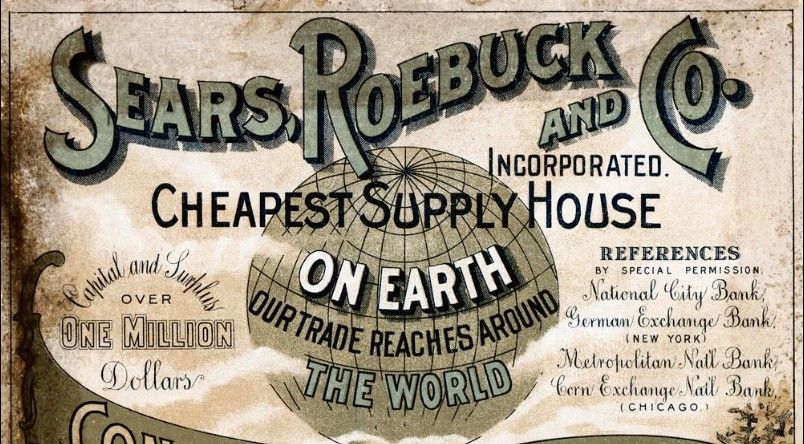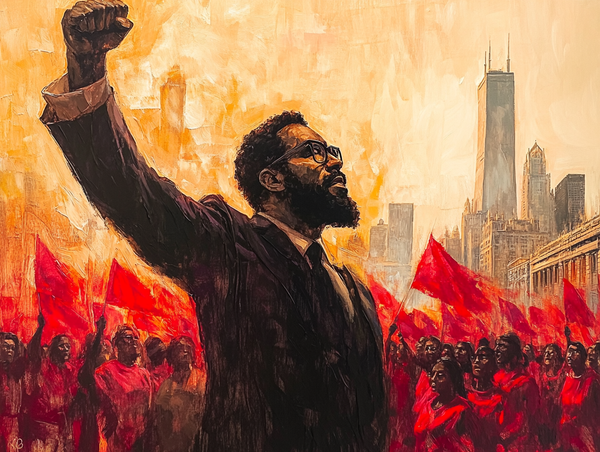Comment: At least they left the tower...
All that success and the former Chicago giant that was Sears, Roebuck & Co. couldn't even see coming that which would be its demise. Itself.

Once upon a time the Sears, Roebuck & Co. catalog revolutionized an industry. Once upon a time it was the largest retailer in the United States, boasting nearly 3,500 stores at its peak. Once upon a time, it was part of the daily life for 350,000 employees and generations of families.
It sold everything, from all of the toys on your child's Christmas list to the home delivery of...homes. It survived two World Wars with a Great Depression in between. It thrived through the turbulence of the '60s, the Cold War, and even the beginnings of globalization. It endured as an American institution through over 120 years of American economic gamesmanship.
It grew and it grew and it grew and the monument to itself in Chicago's Loop reigned for nearly 25 years. Over 40 years in the western hemisphere.
All that success and it couldn't even see coming that which would be its demise.
Revolutionary retail.
How far we can fall...and from such great heights...
While there are a little more than a handful left, the last Sears department store in Illinois closed Sunday in Schaumburg's Woodfield Mall. Which means, for the legendary Chicago-based company and the generations of the aforementioned people from Chicagoland and beyond they once employed, it's effectively over.
Some, I'm sure, had little room for sympathy as they watched Sears get Amazon-ed. Or Walmart-ed. Or dropshipped-ed out of business.
Said a different way, the owners of the small retailers that Sears put out of business a century ago are perhaps resting a little easier and raising a glass tonight after watching companies like Amazon and their ilk drive the final nail into the Sears coffin and after watching, perhaps with a subtle smirk on their face, the same thing happen to Sears that Sears did to them, so long ago.
We could be more poetic if we wanted but it's a simple story, really. A story from the old school.
Sears went under, not because of some political miscalculation in the social media minefields that so many companies in our modern times are forced to navigate, not because of a child safety scandal where children experienced catastrophic side effects of some unknown bad product that made it through a negligent inspection, and not even because of the discovery of some sort of faraway child slave labor. No, the end of a retailer that operated firmly in the middle-class for as long as anyone can remember is not a tale of the "haves and have-nots," nor does it require a deep-dive and thorough examination on exploitation, etc.
It's a basic business lesson.
The leadership at Sears sat on its laurels, failed to innovate and/or evolve, and didn't see the left hook that knocked them out. You can use whatever idiom you wish to summarize it but that's...pretty much it.
It's almost quaint, ain't it? The stuff of Econ 101.
I'd advise any quality business school to immediately add it to its lesson plans but these days they have more pressing priorities to teach like how they feel about the gender of their feelings and the philosophical importance of those gender feelings and the gender makeup of the gender department.
I think if all involved were able to be honest after the dust settles and maybe a few drinks, they'd be the first to admit the irony of such a trailblazing company from the beginning of the last century meeting its doom at the beginning of this wannabe trailblazing century due to such old-fashioned market forces.
Maybe not.
Hey, at least they left the tower...
(To be continued later this year...)





